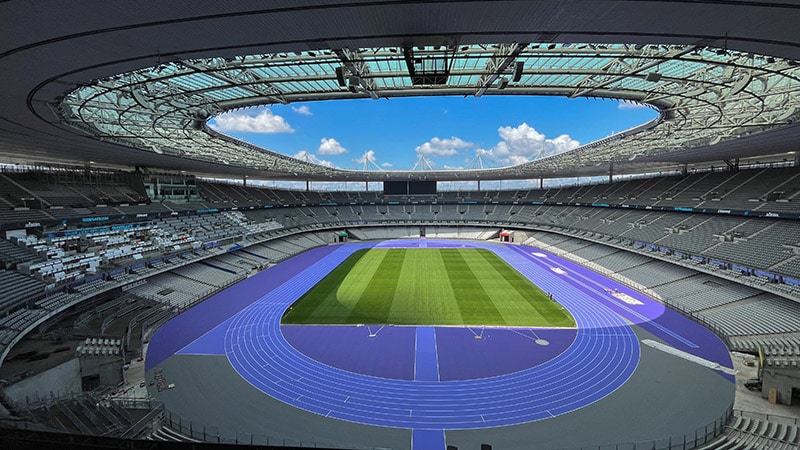Urgent Call for Volunteer Emergency Medics to Support the 2024 Paris Olympics
Core Concepts
The 2024 Paris Olympics is facing a shortage of volunteer emergency physicians and is actively seeking medical professionals to support the event's medical services.
Abstract
The article discusses the preparations for the medical services at the 2024 Paris Olympics. The head of medical services, Pierre Mauger, an emergency physician with extensive experience, provides an overview of the key aspects:
The Olympic polyclinic: A health center to be set up in Saint-Denis, France, that will serve as the main medical facility for the Olympics. It will include a pharmacy, imaging department, medical departments, and physiotherapy services, and can accommodate up to 700 patients per day.
Volunteer health professionals: The Olympics will require nearly 3,000 volunteer health professionals, including 8,000 first-aiders. The organizers are particularly short of volunteer emergency physicians, needing around 200 days of emergency physician coverage. They are appealing to emergency physicians to volunteer for at least 3 days between July 24 and September 10.
Epidemic preparedness: The organizers are working with regional health authorities to monitor and respond to potential epidemics, such as dengue fever. They have plans in place to isolate and test sick individuals to prevent outbreaks in the Olympic Village.
Extreme weather planning: The organizers have contingency plans for storms and heatwaves, which are statistically likely to occur during the Games.
Medical support for the opening ceremony: The organizers have a nautical plan with rescue boats and SAMU (emergency medical service) doctors to provide medical support during the opening ceremony on the Seine River.
Terrorism preparedness: The organizers are responsible for medical care, while the State is responsible for addressing any terrorist threats.
French Olympics: Volunteer Emergency Medics Needed!
Stats
The Olympic polyclinic will be able to accommodate up to 700 patients per day.
The Olympics will require nearly 3,000 volunteer health professionals, including 8,000 first-aiders.
The organizers need around 200 days of emergency physician coverage and are appealing for volunteers.
The organizers have a budget of around €20 million for the medical services.
Quotes
"The Games have committed not to pay emergency physicians to avoid them being more attractive than working in public hospitals and thus stripping them of their staff."
"We fell behind on this program because we let hospitals set their on-call lists first to ensure they had enough staff for the summer before we started allocating volunteers."
Key Insights Distilled From
by Christophe at www.medscape.com 05-30-2024
https://www.medscape.com/viewarticle/french-olympics-volunteer-emergency-medics-needed-2024a1000a5e
Deeper Inquiries
What strategies could the organizers implement to incentivize more emergency physicians to volunteer for the Olympics, while still avoiding the risk of stripping public hospitals of critical staff?
To attract more emergency physicians to volunteer for the Olympics, organizers could consider implementing a variety of strategies. One approach could involve offering professional development opportunities or continuing education credits for volunteers, enhancing their skills and knowledge in sports medicine. Additionally, providing recognition or certificates of participation from a prestigious event like the Olympics could be appealing to many healthcare professionals.
To address the concern of potentially stripping public hospitals of critical staff, organizers could collaborate closely with hospitals to ensure that the volunteer commitments do not interfere with essential hospital operations. This could involve scheduling volunteers during periods of lower hospital activity, such as weekends or evenings, to minimize the impact on regular hospital services. Moreover, organizers could offer flexible volunteering options, allowing emergency physicians to choose shifts that align with their existing work schedules.
How could the organizers better coordinate with hospitals and medical institutions to secure the necessary volunteer medical professionals in a timely manner?
Organizers could enhance coordination with hospitals and medical institutions by establishing clear communication channels and partnerships well in advance of the event. This could involve creating formal agreements or memorandums of understanding with healthcare facilities to outline the roles and responsibilities of both parties regarding volunteer recruitment and deployment. By engaging hospital leadership early on and involving them in the planning process, organizers can ensure a smoother and more efficient recruitment of volunteer medical professionals.
Furthermore, organizers could leverage existing networks within hospitals and medical schools to reach out to potential volunteers. Collaborating with medical associations, residency programs, and professional societies can help spread the word about volunteer opportunities and attract a diverse pool of healthcare professionals. Providing regular updates and transparent information about the volunteer recruitment process can also help build trust and engagement among potential volunteers.
What innovative approaches could the organizers explore to leverage technology and remote medical support to supplement the on-site volunteer medical staff during the Olympics?
To supplement on-site volunteer medical staff during the Olympics, organizers could explore innovative approaches leveraging technology and remote medical support. One strategy could involve implementing telemedicine services, allowing off-site healthcare providers to consult with on-site staff and athletes in real-time. This could enable specialists from different locations to provide expertise and guidance on complex medical cases without physically being present at the event.
Additionally, organizers could consider deploying medical drones equipped with essential supplies and equipment to provide rapid emergency response in hard-to-reach areas or during crowded events. These drones could be controlled remotely by medical professionals and deliver critical care items such as defibrillators, medications, or first aid kits to the site of an emergency.
Moreover, organizers could develop a centralized digital platform or mobile application for volunteers to access medical resources, guidelines, and communication tools. This platform could facilitate seamless coordination among on-site and remote medical staff, enabling efficient information sharing and decision-making during medical emergencies. By embracing technology and remote support, organizers can enhance the overall medical response capabilities and ensure the safety and well-being of participants and spectators during the Olympics.
0
